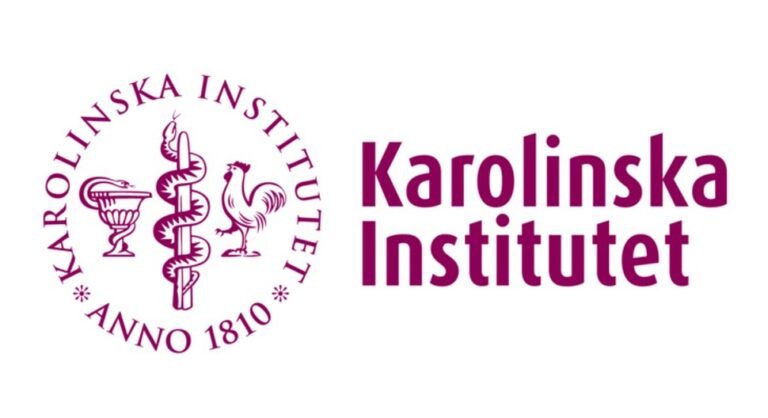The Department of Occupational Therapy currently has approximately 40 employees who are teachers, researchers, doctoral students and administrators, as well as a large international network of contacts. The department conducts education, research and postgraduate training in occupational therapy. The research and postgraduate training are nationally and internationally leading in the field of occupational therapy. We have recurring department activities to support knowledge development and psychosocial well-being. The department is located in Flemingsberg, right next to Karolinska University Hospital, Huddinge.
Do you want to contribute to better health for everyone?
Being a doctoral student means being admitted to a postgraduate education (doctoral training) where one follows an individual study plan. A doctoral student engages in a research project under supervision, supplemented by courses and other learning activities. A doctoral degree requires the equivalent of four years of full-time postgraduate education.
Research group
The doctoral student will be part of the interprofessional research group ENGAGE – Everyday Activities for Health and Change at the Department of Occupational Therapy, which consists of both junior and senior researchers as well as research assistants and doctoral students with varying expertise in different methods. The research group focuses on promoting health, inclusion and social justice at the individual, group and societal level. The research group wants to contribute knowledge about how everyday activities can be used as both means and goals to develop and evaluate efforts and interventions that create conditions for more equitable health. Interventions are developed through the inclusion of and collaboration with people and groups who are at risk of physical or mental ill health, including those living in areas with low socioeconomic status.
The doctoral student will be part of the Graduate School of Health Sciences (FiH) | Karolinska Institutet.
The doctoral project and the doctoral student’s tasks
The doctoral student will work on the project “Stroke prevention among people living in vulnerable areas: Evaluation of a contextual and individually adapted prevention program with people at risk of stroke”. The project focuses on adapting an existing stroke prevention program Make My Day (MMD) for people living in vulnerable areas. The first studies will focus on investigating how context affects access to health-promoting activities and change in health behavior in vulnerable areas. Adaptation will take place through co-creative research methods where people at risk of stroke and other actors are involved. Furthermore, a study will be conducted to evaluate the adapted stroke prevention program with regard to implementation, preliminary effects and implementation.
As a doctoral student, you will collect and analyze data using different methods and grounded in different theories, such as gender theory and intersectionality. You will present results by writing scientific articles and participating in conferences and other contexts where research is disseminated. As a doctoral student in the Graduate School of Health Sciences, you will also participate in courses and activities organized by the graduate school.
What do we offer?
A creative, international and inspiring environment filled with competence and curiosity. Karolinska Institutet is one of the world’s leading medical universities. Here we conduct successful medical research and have the largest range of medical education in Sweden. At KI you will meet researchers with different research areas working together. It is this cross-border collaboration that contributes to KI’s world-leading position in research. As a doctoral student, you are offered an individual research project, a well-trained supervisor, a wide range of elective courses and the opportunity to work in a successful research group. Karolinska Institutet has collaborations with prominent universities all over the world, which provides opportunities for international exchanges. As an employed doctoral student, you receive a contractual salary, you are allowed to exercise freely in our modern health care facilities and you are reimbursed for medical care.
Eligibility requirements for doctoral education
To participate in the selection for a doctoral position, you must prove both the basic (A) and the specific (B) eligibility requirements before the application period closes.
It is your responsibility as an applicant to prove your eligibility by following the instructions on the Eligibility for Doctoral Education webpage.
A) Basic eligibility requirements
You meet the basic eligibility requirements for doctoral education if you:
- have completed an advanced level degree (Master’s or Doctoral degree), or
- have completed course requirements of at least 240 higher education credits, of which at least 60 higher education credits are at advanced level, or
- has otherwise acquired essentially equivalent knowledge.*
Follow the instructions on the Eligibility for doctoral education webpage .
*If you consider yourself to have equivalent knowledge, you should follow the instructions on the website Assessment of equivalent knowledge for basic eligibility for doctoral education.
B) Special eligibility requirements
You meet the specific eligibility requirements for doctoral education if you:
– Certifies knowledge of English (equivalent to English B/English 6 at high school with a passing grade).
Follow the instructions on the English language requirements for doctoral education website.
Document verification Karolinska Institutet checks documents to detect forgeries. Karolinska Institutet reserves the right to revoke admission decisions if forgeries or irregularities are detected. Submission of false documents is a violation of Swedish law and is considered grounds for legal action.
Skills and personal qualities
We are looking for a motivated person with a strong interest in research on preventive measures and equal health. You should have a relevant background, such as a master’s degree in occupational therapy, physiotherapy, nursing, public health science, psychology, social work, gender studies, or equivalent. You are expected to have good communication skills and the ability to work productively and in collaboration with relevant social actors and researchers. Furthermore, you should be meticulous, structured and critically analytical in your working methods. Previous experience in research is an advantage, for example with qualitative, quantitative, and co-creation methods. Knowledge or experience of gender theory and health-promoting interventions is also an advantage.
The candidate will need to have excellent speaking, reading, and writing skills in English and Swedish, the latter as Swedish data will be collected and analyzed. Emphasis will be placed on personal skills in the selection process.
Terms
The doctoral position involves employment as a doctoral student for a maximum of 4 years full-time.
Application
You apply for the doctoral position in the recruitment tool Varbi. Use the button at the top right and follow the instructions. We prefer that your application is written in English, but it is also possible to apply in Swedish.
Your application should include these documents:
– A personal letter and curriculum vitae
– Any degree theses and publications
– Other documents that prove the skills and qualities requested above
– Documents that prove the basic eligibility requirement (see A above)
– Documents that prove the specific eligibility requirement (see B above)
Selection
Selection among eligible applicants will be made based on their ability to benefit from postgraduate education. An overall assessment of the applicants’ qualifications and suitability will be made.
The following assessment criteria are applied at Karolinska Institutet:
– Documented subject knowledge of importance to the research area
– Analytical skills
– Other documented knowledge/experience that may be of importance to the current doctoral education
All applicants will receive information when the recruitment is completed.
Department Department of Neurobiology, Care Sciences and Society
Graduate School Graduate School of Health Sciences (FiH) | Karolinska Institutet
Research group ENGAGE – everyday activity for health and change
Do you want to make a difference – and contribute to better health for all? Apply to Karolinska Institutet
The Department of Neurobiology, Care Sciences and Society (NVS) conducts world-leading research in aging, dementia, epidemiology and care sciences. The research ranges from basic research at the molecular and cellular level to clinical studies and research at the societal level. At NVS, approximately one third of KI’s students complete their undergraduate and graduate education. The department, with approximately 540 employees and a turnover of SEK 530 million in 2023, consists of seven departments and is located on Campus Flemingsberg and Campus Solna.




